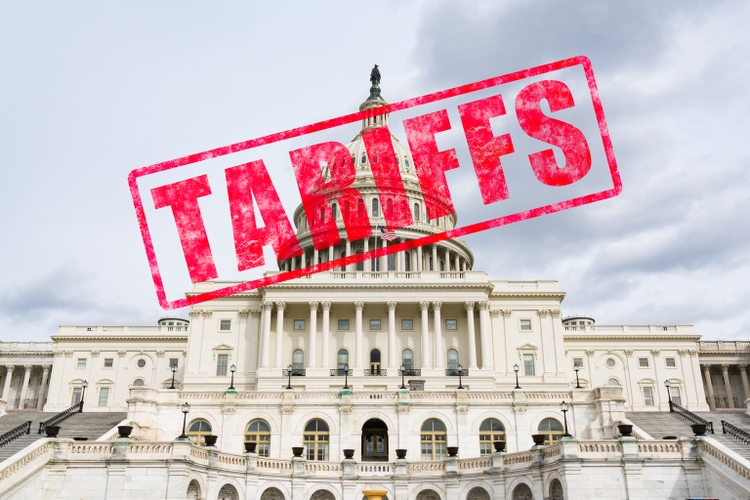
pabradyphoto/iStock via Getty Images
Tariffs are once again in the news, with both Democrats and Republicans debating the pros and cons of taxing goods imported from nations such as China.
Potential targets for new or increased tariffs included EVs, solar panels, agricultural machinery, steel, metals, semiconductors and medical products.
Former President Donald Trump has been particularly pro-tariff, proposing a 60% increase in tariffs on Chinese imports and a 10% tariff on imports from all other countries. The Biden administration, meanwhile, recently finalized tariff hikes on several products imported from China, including EVs, EV batteries, face masks, steel and aluminum.
Which brings us to today’s SA Asks question: Which stocks would be most impacted by increased tariffs?
We asked Seeking Alpha analysts Leo Nelissen and Justin Purohit for their thoughts on the topic.
Leo Nelissen: In general, tariffs are a minefield. According to Morgan Stanley research, tariffs have a greater negative impact during economic expansions than positive impacts during contraction, which bodes negatively for productivity.
That said, winners in such an environment are companies with most of their production in the United States that will be shielded from lower imports. This includes steel companies like Cleveland Cliffs (CLF), aluminum producers like Alcoa (AA), building material producers like Carlisle Companies (CSL) and TREX Co. (TREX), and certain technology companies like Texas Instruments (TXN), with increasingly large domestic footprints – especially in critical areas like semiconductors.
I also like companies with exposure to Mexico, as China is increasingly investing in Mexico to avoid direct tariffs. This includes companies like Canadian Pacific Kansas City (CP).
Losers are most companies with elevated imports and dependence on cheap foreign materials/labor. This includes apparel companies like Nike (NKE) and Lululemon (LULU), as well as retailers like TJX (TJX) and Ross Stores (ROST).
Moreover, high-tech aerospace companies and medical equipment producers like Thermo Fisher (TMO), who rely on foreign sales, could be impacted, as counter-tariffs are likely to be implemented by nations like China.
It also needs to be seen how companies like Prologis (PLD) deal with these issues. Prologis is the world’s largest warehouse owner, with major exposure in Southern California. Aggressive tariffs could hurt imports and lower demand for warehouses in certain areas.
Justin Purohit: Protectionist economic policies driven by tariffs are likely regardless of the outcome of the upcoming U.S. election. While this could negatively impact multiple industries, those most exposed to imports would be hit the hardest.
Automakers with cross-border operations in Mexico and premium retailers like Lululemon (LULU), which heavily rely on suppliers and manufacturers in the Asia-Pacific region and China, are particularly vulnerable. Steelmakers and clean-energy companies could see gains due to reduced competition from foreign imports, although this isn’t guaranteed given their reliance on imported parts and materials.
For investors seeking safer options amid tariff uncertainty, sectors such as consumer staples, utilities and healthcare would likely offer more stability. REITs and pipeline infrastructure-based MLPs, packaged with their consistent dividend payouts and predominantly domestic operations, may be especially attractive in a low-interest-rate and protectionist economic environment.
